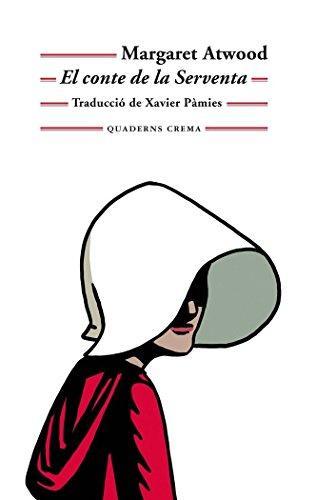Une dystopie totalitaire qui tarde à prendre son envol
2 stars
Nous sommes aux États-Unis, probablement dans les année 1990-2000. Un régime totalitaire théocratique gouverne, les femmes y sont réduites au rôle d'épouse, de procréatrice, ou de domestique. Nous y suivons le parcours de Defred, une Servante Rouge (à vocation procréatrice).
La première moitié du roman pose le décor en relatant le quotidien ennuyeux de la maisonnée, sans aucune péripétie. J'ai failli laisser tomber le livre plus d'une fois tant le livre manque de rebondissements dans cette partie, qui plus est mal servie par un style pesant, parfois abscons.
La deuxième moitié est plus enlevée, avec des péripéties qui nous emportent plus. On s'attache enfin aux personnages, il se passe des choses, l'envers de cette théocratie puritaine nous est peu à peu dévoilé.
L'ouvrage est enfin bien servi par un épilogue, puis par une post-face contemporaine, qui permettent de placer l'ouvrage dans un contexte historique (futur), et d'éclairer les intentions de …
Nous sommes aux États-Unis, probablement dans les année 1990-2000. Un régime totalitaire théocratique gouverne, les femmes y sont réduites au rôle d'épouse, de procréatrice, ou de domestique. Nous y suivons le parcours de Defred, une Servante Rouge (à vocation procréatrice).
La première moitié du roman pose le décor en relatant le quotidien ennuyeux de la maisonnée, sans aucune péripétie. J'ai failli laisser tomber le livre plus d'une fois tant le livre manque de rebondissements dans cette partie, qui plus est mal servie par un style pesant, parfois abscons.
La deuxième moitié est plus enlevée, avec des péripéties qui nous emportent plus. On s'attache enfin aux personnages, il se passe des choses, l'envers de cette théocratie puritaine nous est peu à peu dévoilé.
L'ouvrage est enfin bien servi par un épilogue, puis par une post-face contemporaine, qui permettent de placer l'ouvrage dans un contexte historique (futur), et d'éclairer les intentions de l'autrice.
Au final, je ne sais pas si je recommanderais cette lecture à un ami, tant l'envol du livre est long et pénible. Et c'est bien dommage car j'ai vraiment apprécié la deuxième moitié.



